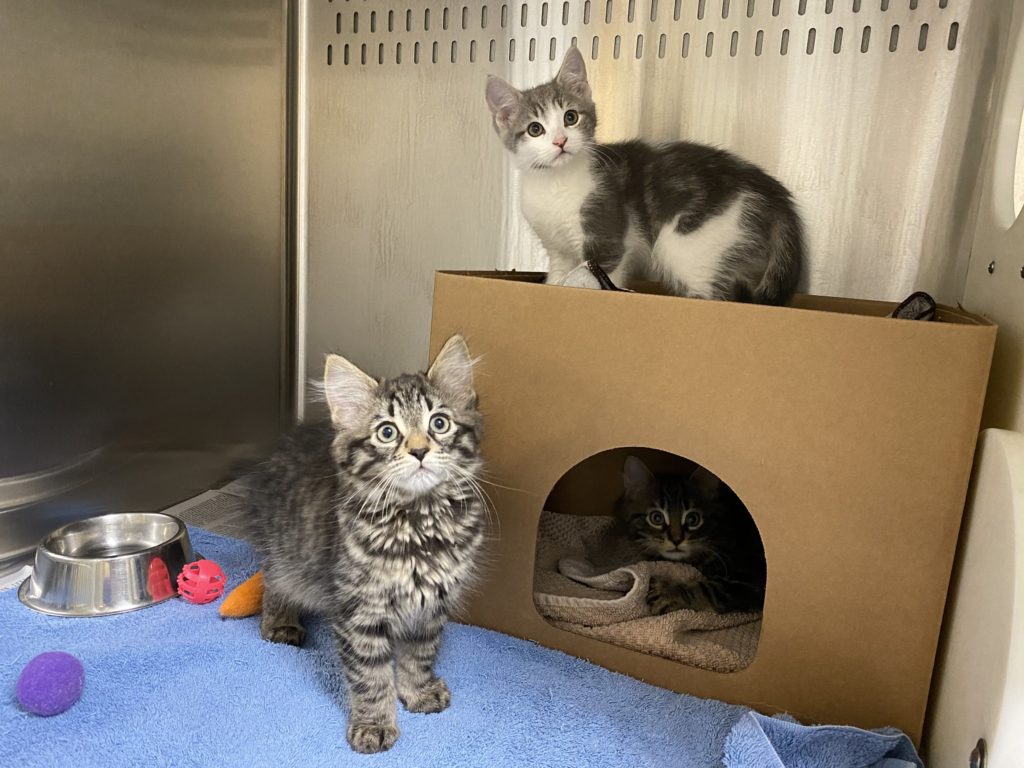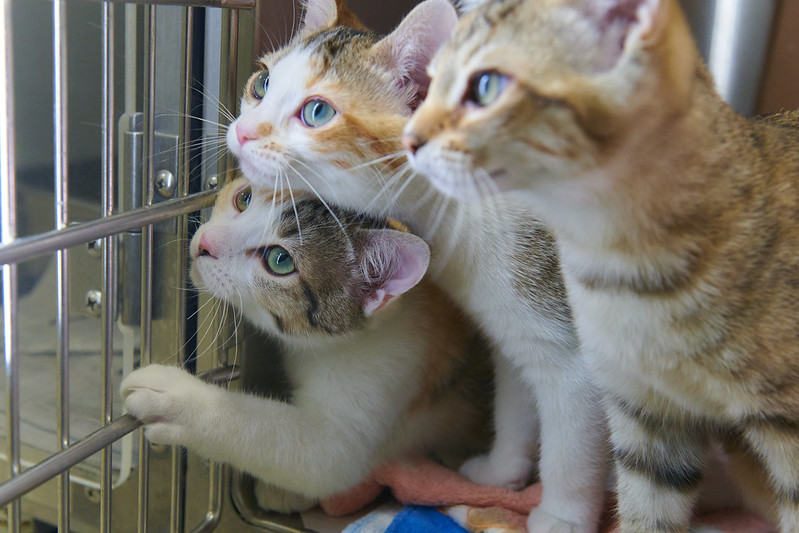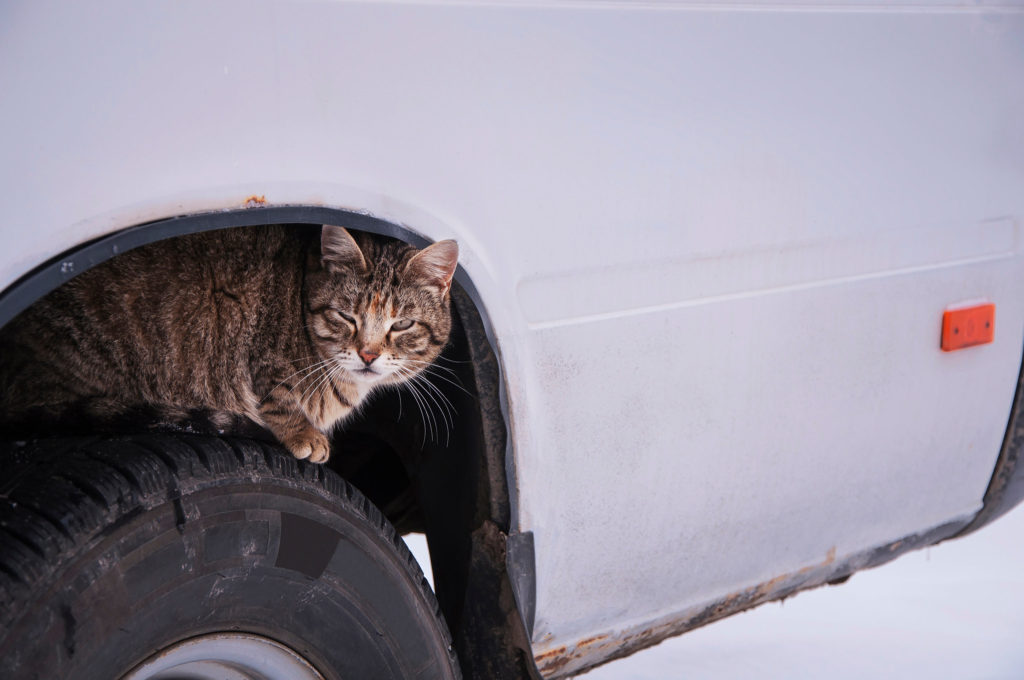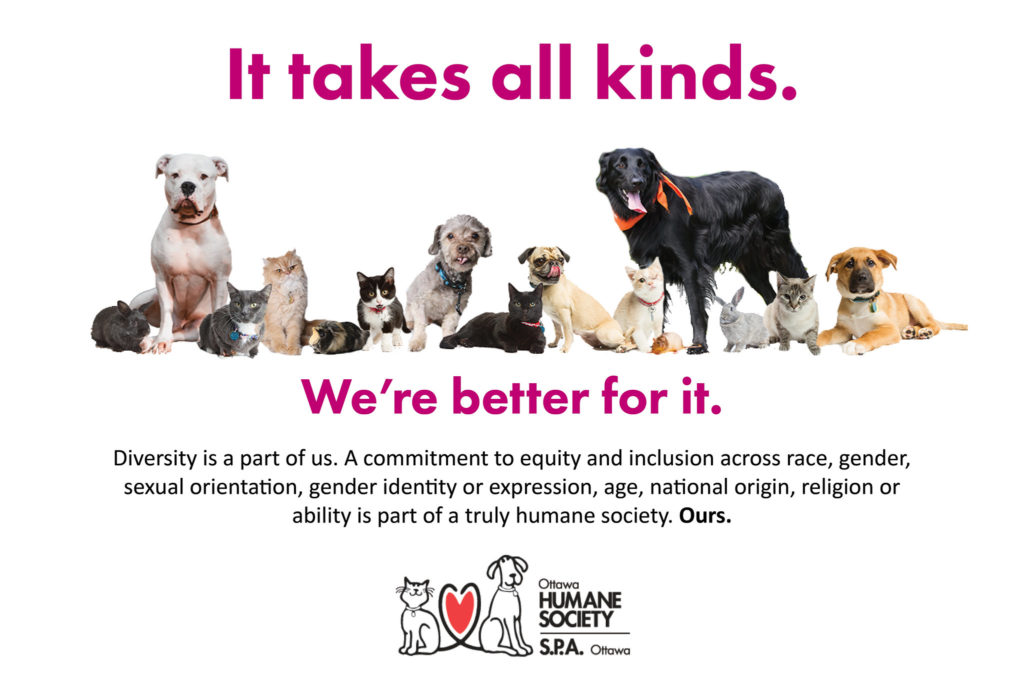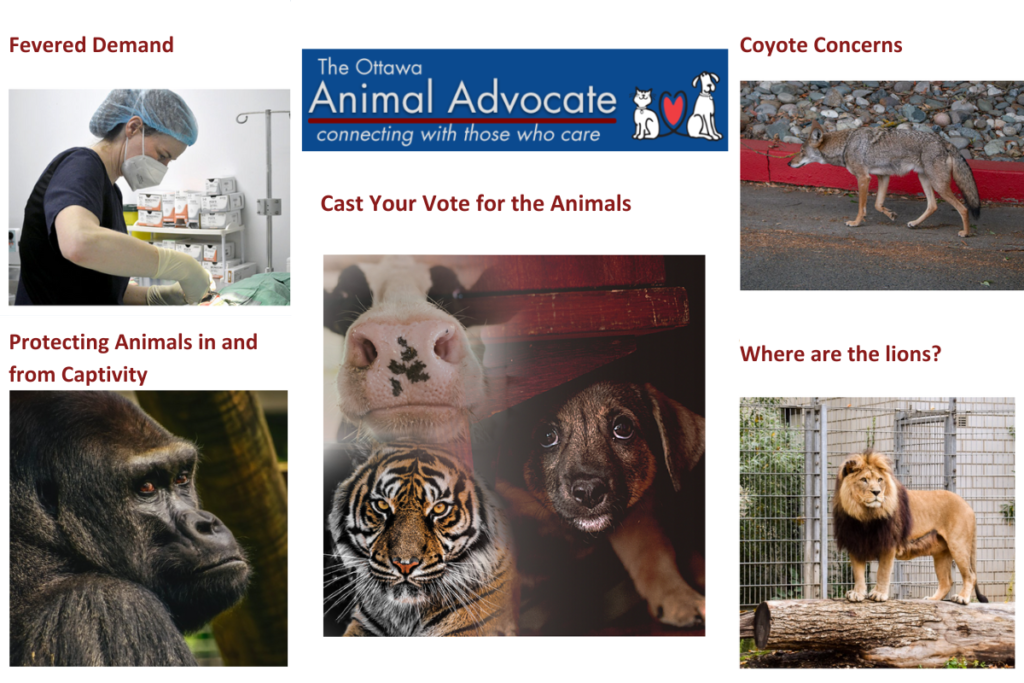Search Results for: wildlife
Ottawa’s Underground Network for the Animals
It’s actually not underground at all, but with how few people know, it may as well be top secret and confidential.
Let me fill you in. Animal welfare organizations, like the OHS, work together. These partnerships don’t all look the same, but they all have the same goal: doing more for animals in need.
A great example is our Partner Support program — piloted during the pandemic when the future was uncertain and each day brought new challenges and hurdles. We provide grants to our partners who help animals we aren’t equipped to care for. Farm animals, wildlife, wild birds and more — the program has supported more than 10,000 animals to date. These grants don’t just help provide day-to-day care, but support new and novel programs that result in more animals receiving more care.
Through our Partner Support program, we also regularly host sterilization clinics that have provided close to 300 essential spay/neuter surgeries for cats, dogs and rabbits in the care of our partners.
Animal transfer is a huge part of these partnerships as well. Different animal welfare organizations have different strengths and are better equipped to provide for different animals. For instance, we recently took in 17 kittens from a rescue in need. We have the capacity to provide for these animals, a veterinary team to get them health checked, sterilized, vaccinated and ready for adoption, and a robust, connected adoption program to find them perfect forever homes — and fast.
We also transfer animals to our partners to help even more animals in need. Haven, a one-year-old grey tabby, came to us with a mass in her chest. We suspected that the mass was benign, but she would need to be monitored for a few months to know for sure. With such a long stay, we decided her best route was with a partner who specialized in foster-based rescue. By working together, Haven found a foster spot with our partner, concerns with her mass were ruled out, and she found her forever family shortly after!
I’m not exaggerating when I say it takes a village to care for animals in need and build a more humane and compassionate community. Working together with our partners and our caring community, we can be there for more animals in need.
Ottawa’s full of people who care, and it’s something everyone needs to know.
Heather Hunter
Director: Outreach and Community Services
Partnership: Essential and Life-Saving
There are endless cliches, sayings and metaphors about the value of teamwork — and for good reason. It’s a fact that more can be done when people work together — I see it every day at the OHS. Supporting hundreds of animals daily is only possible because of a team of caring, compassionate people looking out for the animals.
Our staff is a part of this team and so are our volunteers, donors, adopters, supporters of all kinds, and our community partners.
Our community partnerships are something I value deeply as it’s only through these partnerships that Ottawa can create a secure safety net to protect all animals.
By ourselves, the OHS cannot help every animal in need. Animals such as wildlife and farm animals are beyond our scope of care. Some animals have longer-term or specialized needs that the OHS isn’t always in a position to provide, such as a dog requiring long-term foster care for behaviour issues or complex medical issues, or kittens requiring round-the-clock neonatal care. These animals are often better supported through our community partners who offer that specialized care. We value working with these partners, and supporting them, to help more animals to have a positive outcome.
Exploring even more ways we can work together to support our partners’ work and make more second chances possible is an important part of the OHS’s mandate. Our Partner Support program provides grants to organizations pursuing innovative programming that creates new pathways for animals in need. We regularly host spay/neuter clinics to sterilize animals in the care of our partners. We transfer animals to and from our partners to help with capacity issues and ensure animals have the best chance of success.
We also know that you trust in our work, and that your trust extends to those who the OHS partners with. For our domestic partners, we have criteria in place to ensure standards of care, such as only taking in a number of animals that the organization can reasonably care for. These standards help to further expand the safety net we are weaving for all of Ottawa’s animals.
I’m grateful for the many stellar partners the OHS has. By recognizing and celebrating the strengths of each organization, and working together, we can do so much more for the animals.
It takes a community to help all animals in need.
Sharon Miko
President & CEO
Registered Veterinary Technician: Clinic Services
If you’re a compassionate and results-oriented registered veterinary technician looking for the chance to grow, the OHS is the best place for you! Vet techs at the OHS enjoy a balance of independent and team work in a shelter environment helping a wide variety of animals with diverse medical conditions. Join our team as a Registered Veterinary Technician: Clinic Services and help Ottawa’s homeless animals!
WHAT OUR VET TECHS SAY:
“This is a wonderful team to work with, I have great coworkers who support and encourage me.”
“I love the fact that you see a much wider range of medical issues that you may never see in a clinic and that provides a wide range of learning and experience. We get to work with wildlife as well!”
“A lot of VA’s don’t realize that we work with a schedule/structure, not like ER or GP where you are waiting around until the veterinarian sees an animal to start a treatment plan. At the OHS, you’re constantly using your skills.”
“I like that we have a certain level of independence, and I like being trusted to make decisions.”
“There’s so much variety in our work and I find I work more closely with animals than in a private clinic. I also love not having to work with pet owners directly.”
“I love being able to see improvements of animals I’ve worked with and seeing them go up for adoption. It feels good knowing we’re making a difference.”
WHAT WE OFFER YOU:
Salary: $26.30 to $32.02 per hour
Benefits:
- Extended Health, Dental, Paramedical and Vision Care coverage
- Life and Long-term Disability Insurance
- Paid sick leave days
- Vacation Days, Statutory Holidays
- Four additional Paid Leave Days
- Employee Assistance Program
- RRSP match
- Free on-site Parking
- Veterinary food and other supplies discount
- Career Development (internships, on-the-job learning, mentorships, internal and external training opportunities) and Paid Continuing Education Opportunities (bursaries, CE allowance, membership dues, tuition reimbursement)
Schedule:
- Full time position working 37.50 hours per week.
- Work schedule may include evening, weekend shifts, and holidays.
2023 Media Releases
Celebrity Cat Touring the Ottawa Humane Society (Dec. 14, 2023)
Pet Affordability Crisis — Ottawa Humane Society Eyes Ways to Help Even More Animals (Nov. 23, 2023)
Life-Saving Event for Ottawa’s Homeless Animals Happening Tonight (Nov. 3, 2023)
Halloween Family Fun at Ottawa Humane Society (Oct. 27, 2023)
More than 90 Cats Admitted to the Ottawa Humane Society (Oct. 17, 2023)
Dog Destroys Tens of Thousands of Dollars-Worth of Humane Society Equipment (Oct. 5, 2023)
Special Message from the Ottawa Humane Society: “Thanks for Wiggling and Waggling!” (Sept. 25, 2023)
Staying Ahead of the Curve: Ottawa Humane Society Taking Steps to Keep Families Together (Sept. 21, 2023)
Ottawa Humane Society Urges Pet Owners to Brace for a Hot Week (Sept. 1, 2023)
Putting People and Their Pets First: Ottawa Humane Society Planning the Organization’s Next Five Years (Aug. 24, 2023)
Ottawa’s Rabbit Crisis is at Critical Mass (July 24, 2023)
Keeping Pets Safe During the Hottest Days Ever (July 7, 2023)
Protecting Pets from Fireworks (June 30, 2023)
Puppy with Badly Broken Leg Recovering at Ottawa Humane Society (June 22, 2023)
$150 for a T-Shirt? Homeless Dogs in Desperate Need of Crates (June 16, 2023)
Smog Poses a Risk to Pets — Warns Ottawa Humane Society (June 6, 2023)
17 Rats Brought to Ottawa Humane Society on Long Weekend (May 25, 2023)
Rising Heat Poses a Danger to Ottawa’s Pets (May 10, 2023)
Ottawa Humane Society Eliminates Surrender Fees (April 13, 2023)
More Than 20 Big Dogs in Need of Foster Homes (March 17, 2023)
Ottawa Humane Society Launches Lottery to Support the Animals (March 7, 2023)
Ottawa Humane Society Seeking New Board Members (March 3, 2023)
More Than 40 Animals to be Spayed and Neutered at the Ottawa Humane Society (Feb. 24, 2023)
Ottawa Humane Society Warns Pet Owners to Take Caution During Cold Snap (Feb. 2, 2023)
Coming Together for Ottawa’s Cats
The issue of homeless cats is one that Ottawa and the Ottawa Humane Society have constantly grappled with.
I have seen the terrible things that happen to cats left to fend for themselves. Killed by predators, maimed by vehicles, succumbing to the elements, disease and starvation. These cats are often brought to the OHS, but often it is too late.
With the support of our community, the OHS has taken many steps to address cat homelessness — from our Mobile Spay/Neuter Service and microchip clinics, to marketing and education campaigns on pet safety and identification.
But so many cats still come to the OHS, and our partners see the same trend. We have to do more. Yesterday, the OHS brought together community partners interested in curbing cat homelessness, and hosted a first-ever Community Cat Summit.
Led by renowned wildlife biologist Dr. John Boone, the summit explored how we can compassionately and effectively end Ottawa’s cycle of homeless cats.
Ending cat homelessness is a complex problem, but one we — with our partners’ and community’s support — believe we can solve.
While there were many important takeaways from Dr. Boone’s presentation, the most heart-wrenching was that the greatest victims — and those least seen — are the many young kittens born outside who suffer and lead lives that are cut horribly short.
Together, we must change people’s views on cats in our community and our responsibility to these animals. We must support efforts for sterilization, and for providing a safe world for cats to live in: either indoors, or outdoors safely supervised by their owner. Until then, too many cats will continue to suffer. I learned a lot from the summit and I started getting even more excited about how the OHS can work together with the community to save cats. It’s another step in a long journey, but one that is so worthwhile.
Lindsey Marcon
Manager: Community Services
Now that We Know Better
When I began working at the Ottawa Humane Society 22 years ago and for quite a few years after, the board, staff and volunteers were predominately white, with ancestry in the British Isles. To be honest, for many years, I had naively assumed this was a cultural phenomenon. That is, I had assumed that other cultures in Canada just weren’t that interested in dogs and cats, nor the welfare of wildlife and livestock.
But the past few years — especially with the Black Lives Matter and Truth and Reconciliation movements — have been eye-opening. It has never been clearer that we must take a hard look at ourselves, challenge our assumptions, and do better for our staff, volunteers and community.
In March of 2021, I presented a plan to the board of directors to foster diversity, equity and inclusion at the OHS. The plan covered such areas as our public presentation of ourselves, our recruitment practices and diversity on the board itself.
In preparation for the plan, I consulted with the staff we did employ who I identified as diverse. That was my first mistake. I now understand that I should have asked people to self-identify. Yet, out of this, I learned a second important lesson. One staff member who had recently been hired told me that she had serious reservations about applying because we didn’t have a diversity statement on our website. It had never occurred to me that simple thing could be so powerful. Frankly, I thought diversity statements were often disingenuous marketing ploys. Again, I was wrong.
When we posted a diversity statement we truly believed in, our organization began to change, and quickly. Today, the OHS staff and board have become more representative of the community we serve, and we are much better for it.
Though we have made progress, we are certainly not done. To be real and meaningful, we can’t complete the plan as a checklist of tasks. We need to absorb new ideas, make mistakes, fix them, and grow in our minds and in our actions. We need to learn from others. As Maya Angelou wrote, “I did then what I knew how to do. Now that I know better, I do better.”
Bruce Roney
President & CEO
Inclusive Presentations
Free in-person presentations for special education classes, alternative schools, and all M.F. McHugh Education Centre program classes!
Our Humane Education school program is inclusive, and appropriate for children and youth of all abilities. All presentations are customizable to suit the learning needs of your students.
Presentations are 1-hour in length, and whenever possible include a visit with an OHS program dog (subject to availability).
Request an in-person presentation using the link below. An OHS representative will reach out to you to confirm the presentation date.
Why Teach Humane Education in the Classroom?
Humane education delves into something that all kids love — animals! The OHS’s Humane Education program:
- Promotes and encourages character development by promoting respect and empathy toward people, animals and the environment;
- Provides the knowledge and understanding necessary for children to resolve conflict situations and make responsible choices;
- Fosters a sense of responsibility on the part of children to make choices and act upon their personal beliefs.
COST: All humane education presentations are complimentary and intended to support current curriculums. We happily accept donations — both financial and in-kind. For in-kind donation ideas, please visit our Wish List.
Questions? Contact the supervisor: programs at 613-725-3166 ext. 298 or at programs@ottawahumane.ca.
Will You be an Animal Advocate?
Many people have asked me over the years, “What is the difference between a humane society and an SPCA?” The answer is, today, functionally there is no difference. Most humane societies and SPCAs do similar work and have similar missions and mandates. Best I can tell, the names are different for historical reasons; SPCAs were founded solely to protect animals, while humane societies were founded with a broader mandate of protecting animals and children. This is the case for the Ottawa Humane Society who worked for the welfare of children as well, until the Children’s Aid Society was founded 12 years after the OHS came into being.
I like to remind people, we aren’t the dog and cat society, we’re the humane society. Though today, the day-to-day focus of the OHS is pets: dogs, cats and the little ones and their welfare issues, we remain concerned about all animals: livestock, wildlife, and animals in captivity as well as domestic pets. While we aren’t generally out in the field, building awareness and leading change for the welfare of all animals is a part of our mandate. The primary way we bring attention to these issues is through our monthly e-bulletin, the Animal Advocate.
The Animal Advocate shines a light on such issues as conditions in zoos and circuses, the welfare of livestock, and diminishing wildlife habitats and what you can do to help. If these are issues you’re concerned about, you can scroll down a bit on our website and sign up to receive the Animal Advocate. If you’re not sure, you can check out back issues.
You too can be an advocate for the animals — all animals.
Bruce Roney
President & CEO
Be a Responsible Pet Owner
Pets rely on us to provide them with everything they need to live a happy and healthy life. When you are a responsible pet owner, you and your pet will enjoy a lifetime of love and companionship. Follow these essential tips:
Veterinary Technician: Animal Care
If you’re a compassionate and results-oriented veterinary technician looking for the chance to grow, the OHS is the best place for you! Vet techs at the OHS enjoy a balance of independent and team work in a shelter environment helping a wide variety of animals with diverse medical conditions. Join our team as a Veterinary Technician: Animal Care and help Ottawa’s homeless animals!
WHAT OUR VET TECHS SAY:
“This is a wonderful team to work with, I have great coworkers who support and encourage me.”
“I love the fact that you see a much wider range of medical issues that you may never see in a clinic and that provides a wide range of learning and experience. We get to work with wildlife as well!”
“A lot of VA’s don’t realize that we work with a schedule/structure, not like ER or GP where you are waiting around until the veterinarian sees an animal to start a treatment plan. At the OHS, you’re constantly using your skills.”
“I like that we have a certain level of independence, and I like being trusted to make decisions.”
“There’s so much variety in our work and I find I work more closely with animals than in a private clinic. I also love not having to work with pet owners directly.”
“I love being able to see improvements of animals I’ve worked with and seeing them go up for adoption. It feels good knowing we’re making a difference.”
WHAT WE OFFER YOU:
Salary: $26.30 to $32.02 per hour
Benefits:
- Extended Health, Dental, Paramedical and Vision Care coverage
- Life and Long-term Disability Insurance
- Paid sick leave days
- Vacation Days, Statutory Holidays
- Four additional Paid Leave Days
- Employee Assistance Program
- RRSP match
- Free on-site Parking
- Veterinary food and other supplies discount
- Career Development (internships, on-the-job learning, mentorships, internal and external training opportunities) and Paid Continuing Education Opportunities (bursaries, CE allowance, membership dues, tuition reimbursement)
Schedule:
- Full time position working 37.50 hours per week.
- Work schedule may include evening, weekend shifts, and holidays.

